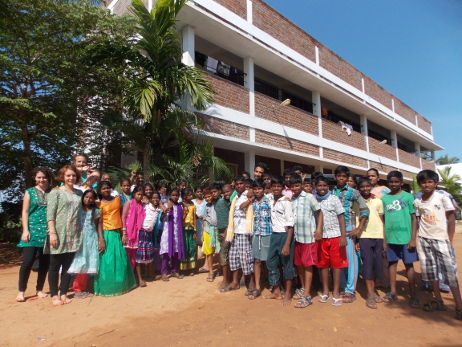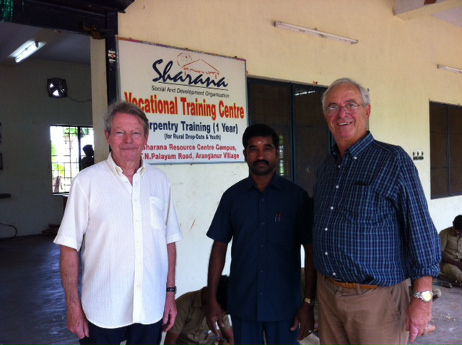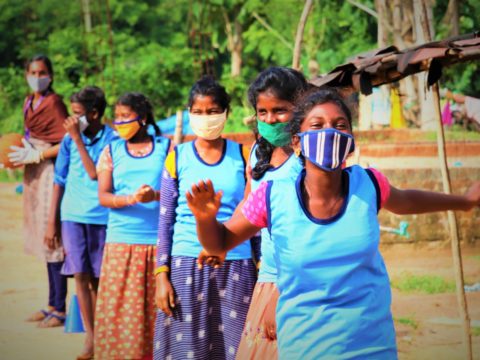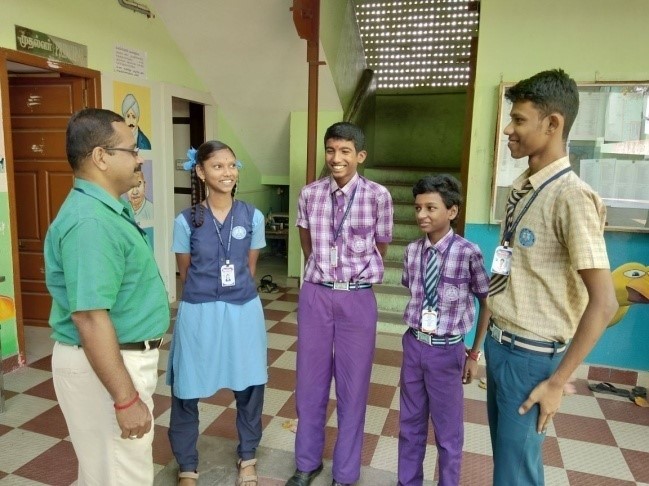 UNICEF states that “The vast majority of children without parental care have living family members, including at least one parent or other relative.” It also states that children in alternative care “are more likely to experience violence, abuse, neglect and exploitation”
UNICEF states that “The vast majority of children without parental care have living family members, including at least one parent or other relative.” It also states that children in alternative care “are more likely to experience violence, abuse, neglect and exploitation”
At Sharana our experience resonates with the UNICEF observations and therefore the Residential Care Institution (RCI) system is not our solution for orphans and deserted children. We take the longer, more arduous route and work towards reinserting our children into their extended families. A few years back Sharana merged with another organization and we inherited a shelter with several children. It took us two years to close the shelter and most children were reinstated within extended families, and those that couldn’t were enrolled into boarding schools. Mr. Manuel, who was in charge of this project, observed that there was a marked difference in the wholesomeness and happiness in the children who lived with their families as opposed to those in the boarding schools, despite regular follow-ups of their well-being. And after speaking with Dinesh I understood for myself why this was true.
Dinesh, a well-groomed young man of gentle demeanor sat opposite me flanked protectively by Mr. Ravianand, our Program Manager and Manuel. He was seven when his mother died, his sister, six. As she lay on her deathbed, his mother made a wish to her beloved brother requesting him to take care of her children, and give them the education they deserved. But what about her husband, I wondered. Ravi said that he had remarried. That wasn’t too unusual, but before I could react Ravi added, “He remarried and abandoned his children”. “How small were they?” “Dinesh was seven, their father abandoned both his children barely a month after their mother had died”. My eyes moved to Dinesh and it crushed me to watch him nod, confirming.
His Uncle, Mr. Manikandan kept his word, took the children in and enrolled them in private schools, but a few years later he faced financial difficulties. This is when Sharana stepped in and assisted both children so that they could continue their studies in the private school their mother had hoped for. Both children were exceptional students. His sister, 21, completed her course in Ancillary Nursing and Midwife (ANM) and recently started her job in a private hospital in Chennai. Dinesh, 22, has completed his Masters in Industrial Chemistry. Dinesh was the Sharana Topper in the 12th Standard in 2018 and feedback from schools has always been positive.
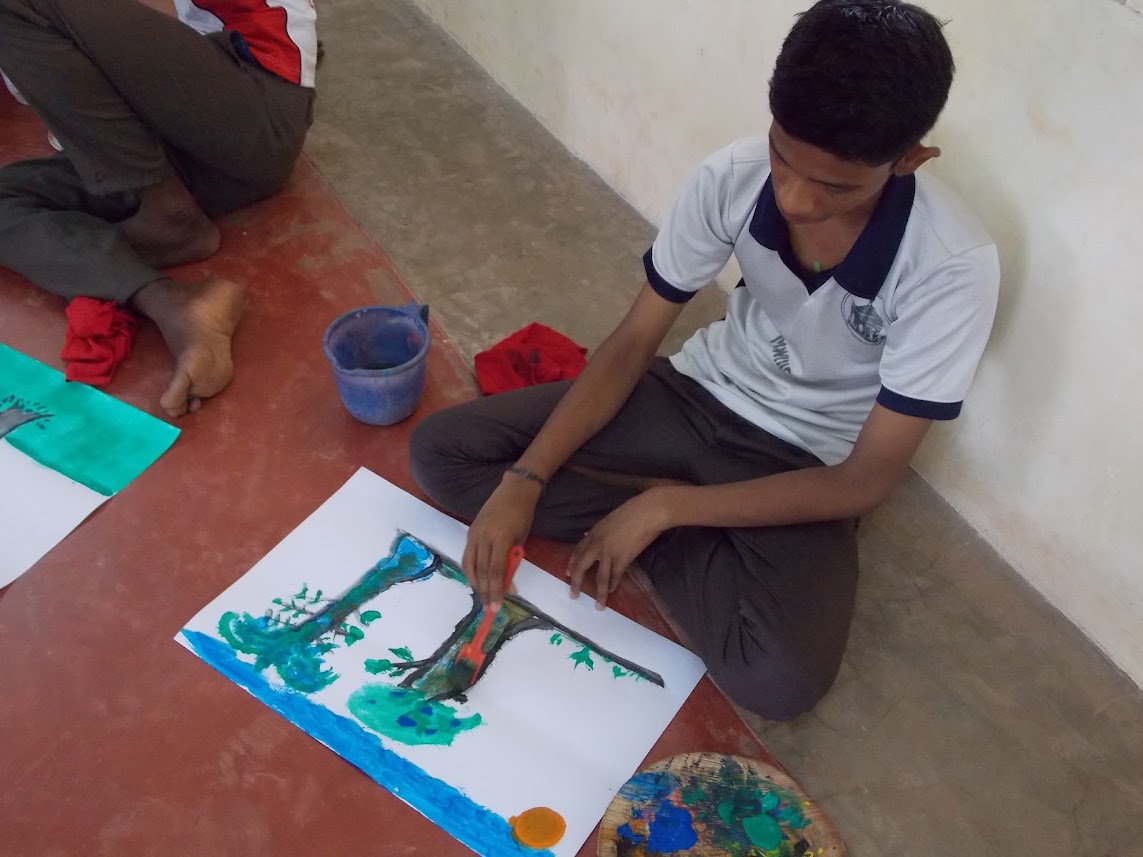 When I congratulated Dinesh, he said that Sharana motivated him to study seriously and he realized that “Education was a tool, a weapon, to grow in life”. He loved the summer camps as it gave him the opportunity to play with other children of his age. As seems to be a recurring echo, it is the undefinable qualitative inputs of Sharana that he is grateful for. He remembers with gratitude every time he was told never to give up on his education. That is when I asked him if he ever felt pressure to work and earn to repay and make his uncle’s life easier (since most of our beneficiaries are first generation school goers from financial vulnerable families, we often counsel them to take up Vocational Training after their 10th or 12th so that they may start to earn soon). He shook his head. He knew that the field he had chosen had enormous potential and that pursuing his studies would only help him acquire better prospects.
When I congratulated Dinesh, he said that Sharana motivated him to study seriously and he realized that “Education was a tool, a weapon, to grow in life”. He loved the summer camps as it gave him the opportunity to play with other children of his age. As seems to be a recurring echo, it is the undefinable qualitative inputs of Sharana that he is grateful for. He remembers with gratitude every time he was told never to give up on his education. That is when I asked him if he ever felt pressure to work and earn to repay and make his uncle’s life easier (since most of our beneficiaries are first generation school goers from financial vulnerable families, we often counsel them to take up Vocational Training after their 10th or 12th so that they may start to earn soon). He shook his head. He knew that the field he had chosen had enormous potential and that pursuing his studies would only help him acquire better prospects.
- Ms. Alo-Tell me about your home, how it was growing up with your uncle.
- Dinesh–My uncle and aunt are very loving. We also live with my grandmother. I love my two little cousin sisters.
- -And your father? Did he ever check on you?
- –Never, not even once.
- -How did you learn he had passed away
- –His family informed us.
I tried to read Dinesh’s face when he said this, to see if there was sorrow or regret behind that steady gaze with which he looked into mine stating the facts. I am no one to conclude that the loving upbringing he had received overshadowed any sadness or regret, but if not that, it was most certainly very close to that.
- I love my family, I love my uncle very much and my two little cousins, I was brought up by my aunt as her son. In the future I want to take care of my uncle’s family and help Sharana.
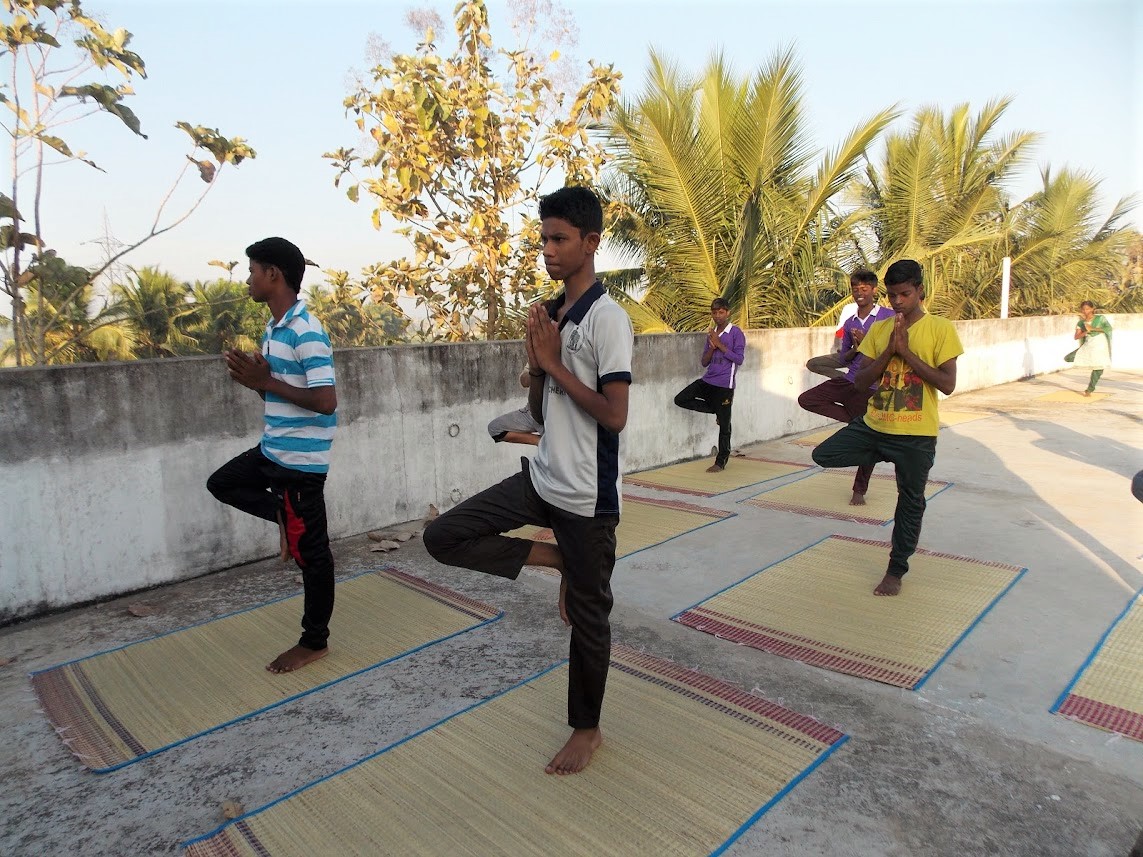 I quickly darted my eyes across to Ravi and Manuel; both were looking at this young man in front of me with a priceless smile and love in their gaze. I had a thought for his mother in my heart. How anxious she must have been at her deathbed and how helpless. How desperate must have been that dying wish knowing she was leaving behind little children at the mercy of her husband. I hope she has found peace now. I know she has.
I quickly darted my eyes across to Ravi and Manuel; both were looking at this young man in front of me with a priceless smile and love in their gaze. I had a thought for his mother in my heart. How anxious she must have been at her deathbed and how helpless. How desperate must have been that dying wish knowing she was leaving behind little children at the mercy of her husband. I hope she has found peace now. I know she has.
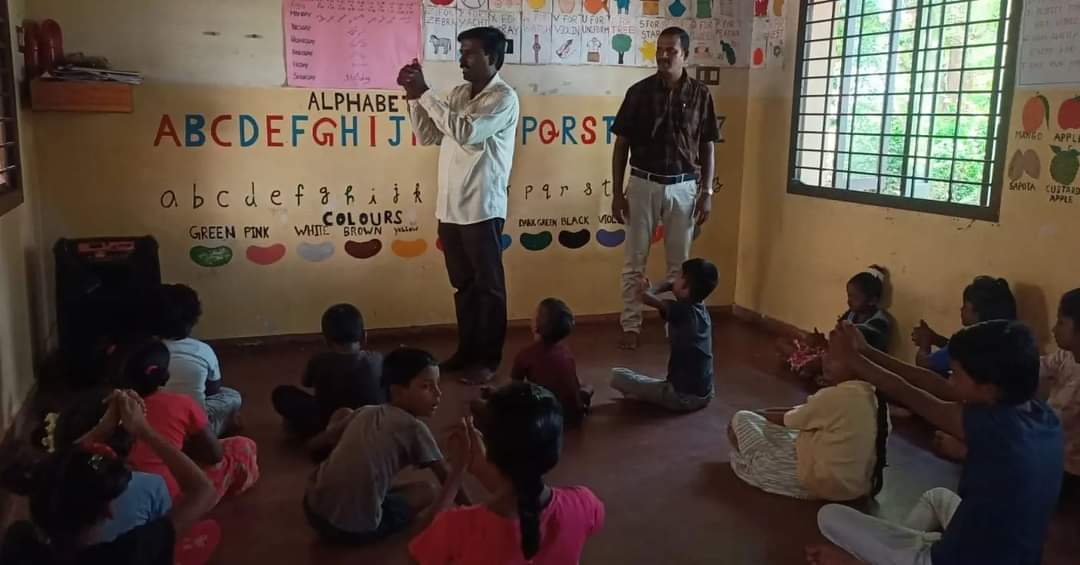 Mr. Manikandan conducting Art of Living sessions at this year’s Summer Camp
Mr. Manikandan conducting Art of Living sessions at this year’s Summer Camp
Their uncle not only took these children under his wing but sent his own children to a Government Schools so the other two could establish themselves with good education. Mr. Manikandan is an Art of Living coach who took workshops during the summer camps. Manuel adds that when he wanted to involve the fathers of our beneficiaries in an art therapy session Manikandan was instrumental in motivating the fathers to join.
- -You’ve completed your Masters, now are you looking for a job?
- –I want to pursue my PhD in Industrial Chemistry ma’am. I want to get into Research and Development.
It was now my turn to smile at this young man. This moment validated so much, reinforced my belief and Sharana’s conviction that our Indian families and family values have given us large hearts. With a little help, support and guidance, children, orphaned or abandoned by circumstance could get a wholesome upbringing and productive lives by finding space in the hearth and homes of extended family. And that, most importantly, a large heart is not the monopoly of the privileged.







